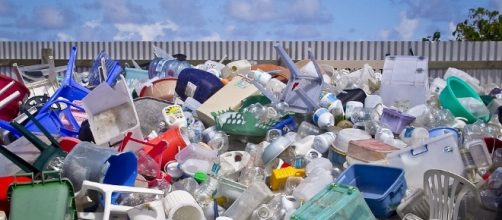The island that does not exist
If you were to look for Henderson Island on a map of the South Pacific it apparently cannot be located and that's for good reason. Upon the island are endangered species such as the Henderson Petrel and other species like the Green Turtle which comes ashore to lay its eggs.
Henderson Island does not allow visitors and it is administered as an overseas UK territory for the specific reason of its pristine environment and as mentioned its endangered species. However, its beaches are not so pristine as all human waste washes up there and this is having a detrimental impact on the species like the ones mentioned.
Henderson Island: Beacon for human rubbish
Unfortunately, Henderson Island is in the pathway of human debris brought in by the ocean currents from countries like the USA, Japan, and Chile. These are just some of the nations where rubbish is coming from and it can be anything from fishing nets, plastic bags, buoys, and plastic pots.
An environmental cleanup was not thought necessary until photos emerged of just how much rubbish has washed up on its beaches. It is certain something will have to be done as the amount of human garbage must be in the millions.
It seems even though the rubbish especially plastic is harmful to some species it seems others are adapting to this environment. For example, a photo has emerged of a crab that usually uses shells for a home which has instead been using a plastic blue pot for a home.
This shows some species are carrying on with their lives and adapting. To the crab, a hollow plastic pot is just as good as a hollow abandoned shell for a home but as the crab grows in size it has to select a larger shell which it will do if there are no larger plastic pots sitting around.
Human waste a threat to all life
It is understandable why the government some time ago introduced a charge for plastic bags in shops when you see what our waste is doing to species on our planet.
Plastic apparently takes many thousands of years to break down naturally and because of this, it floats around our oceans or sinks to the bottom.
The damage to species may be forever as many species from fish to seabirds and marine mammals have been found to have ingested some of this. Humans as we presently live our lives are a threat probably to most creatures on this planet and possibly ultimately to ourselves.
There are many groups and individuals trying their damnedest to save our planet and those species with whom we share this planet but is it too little too late.


